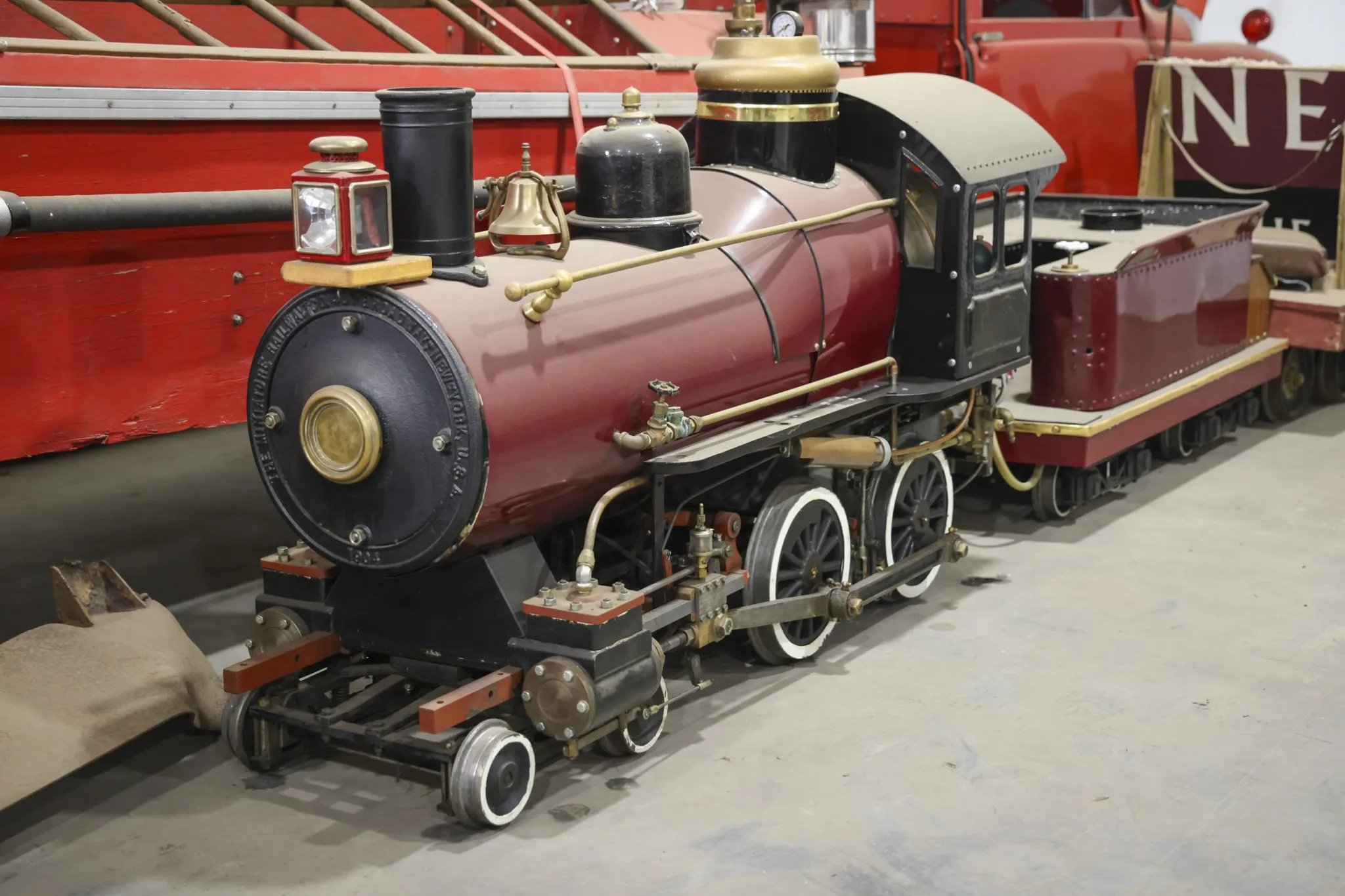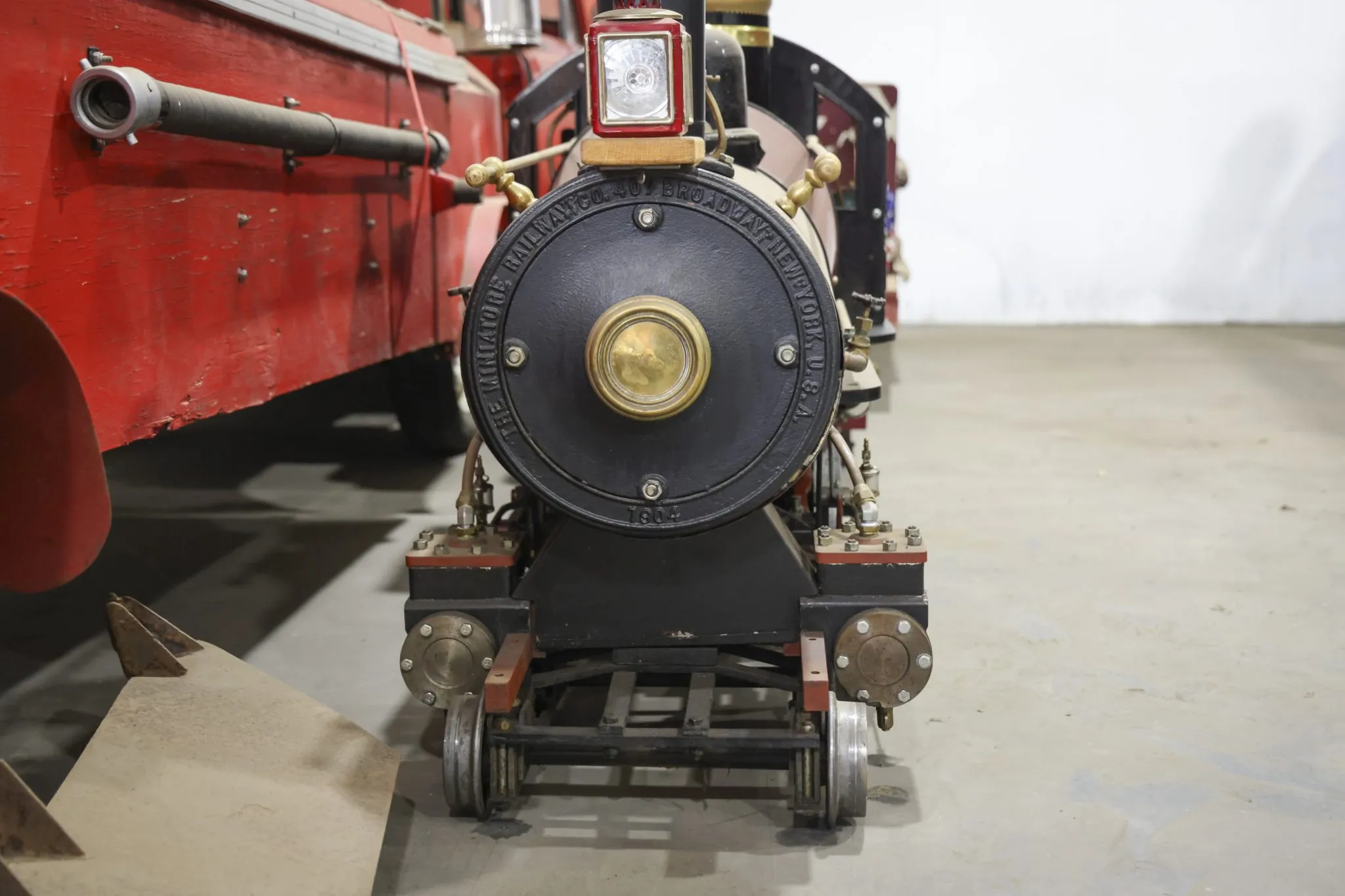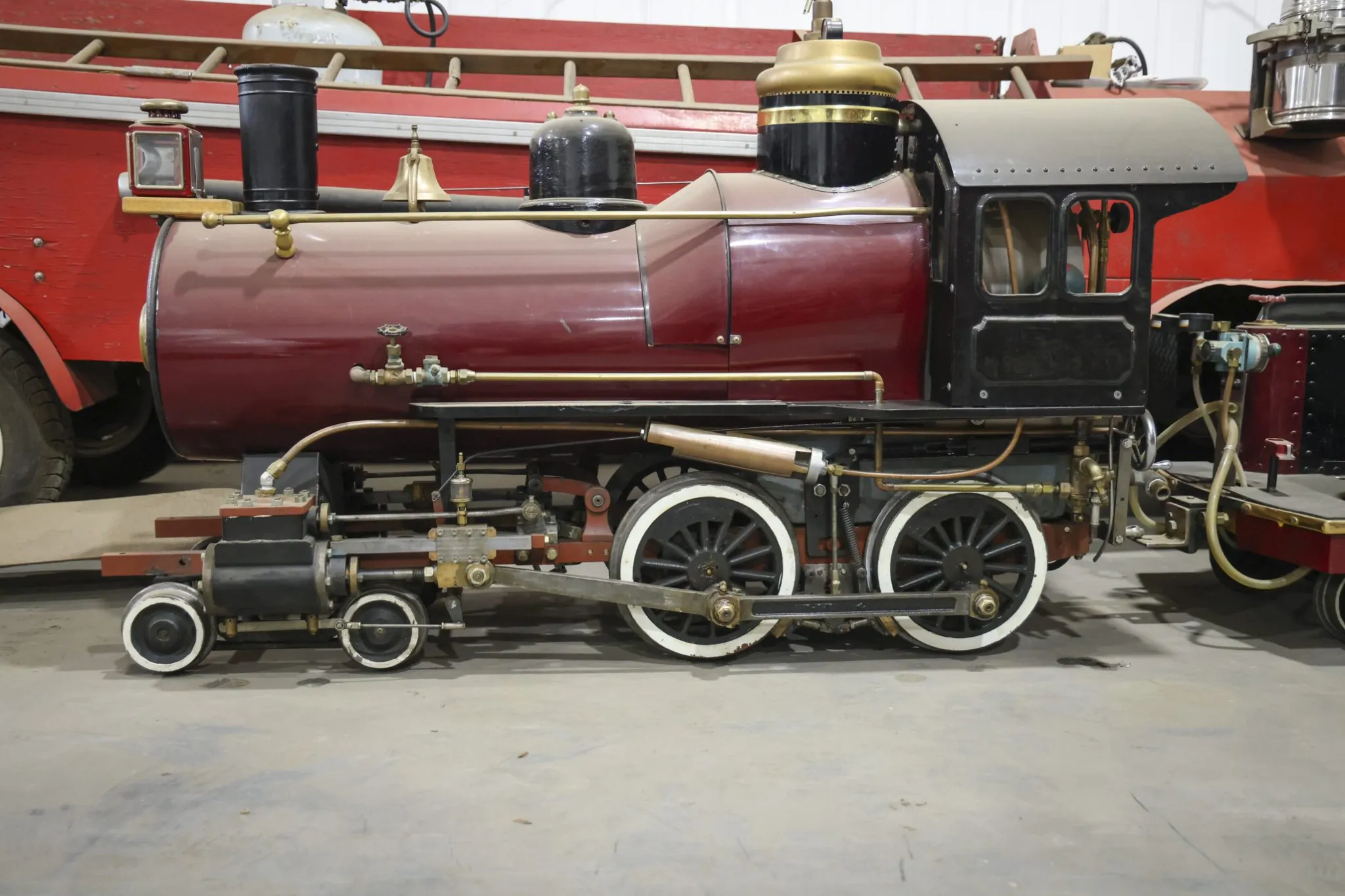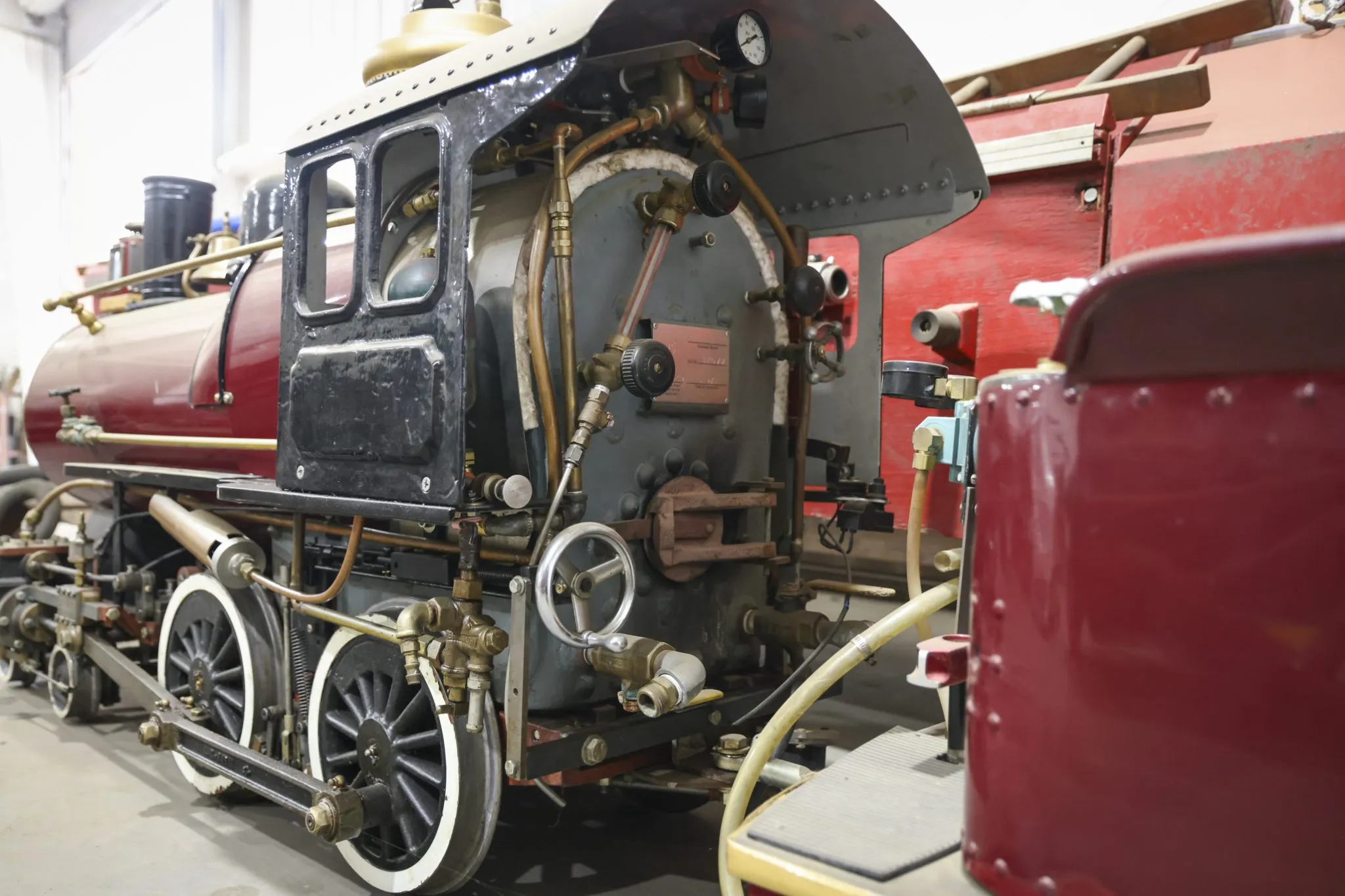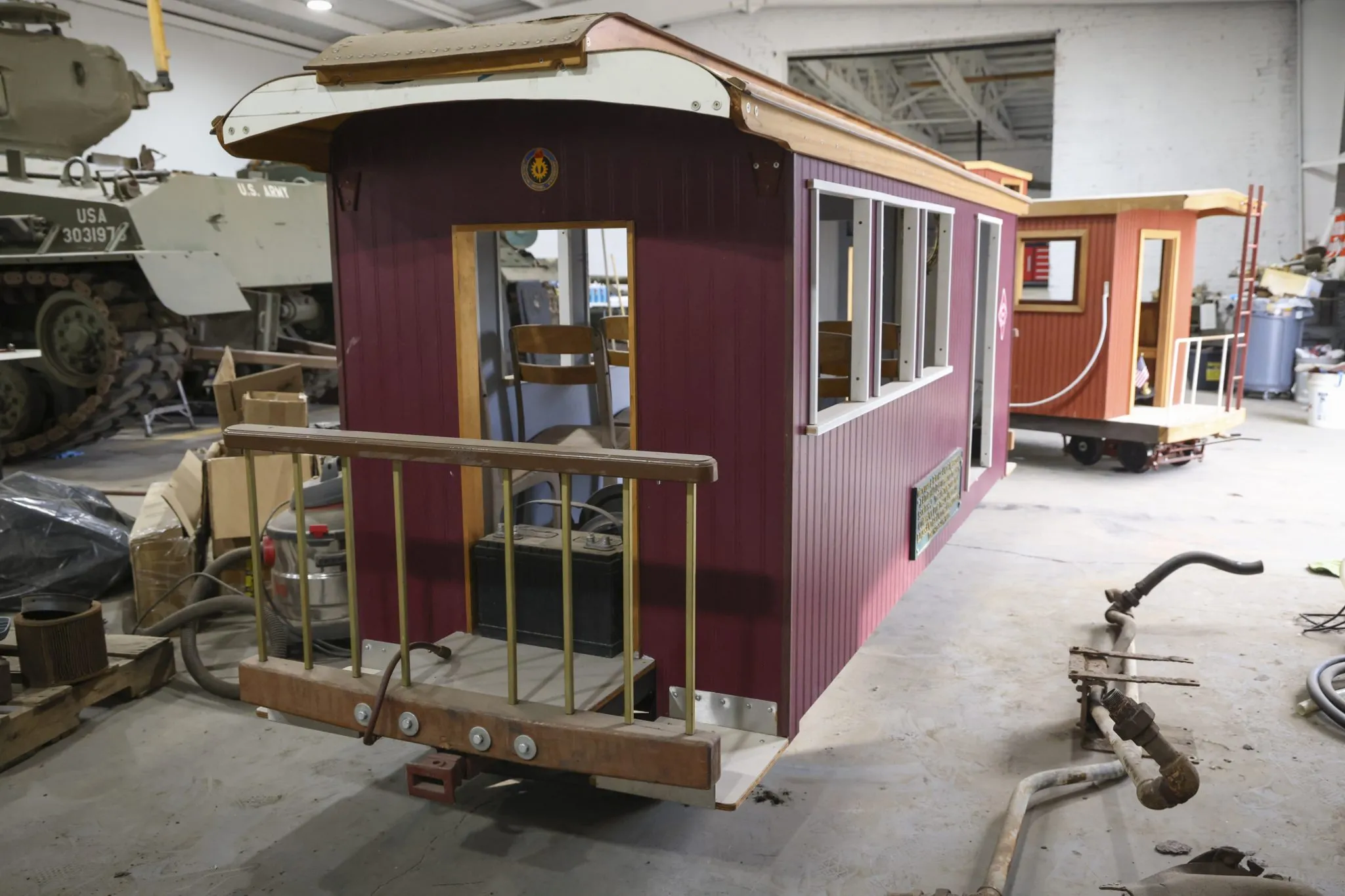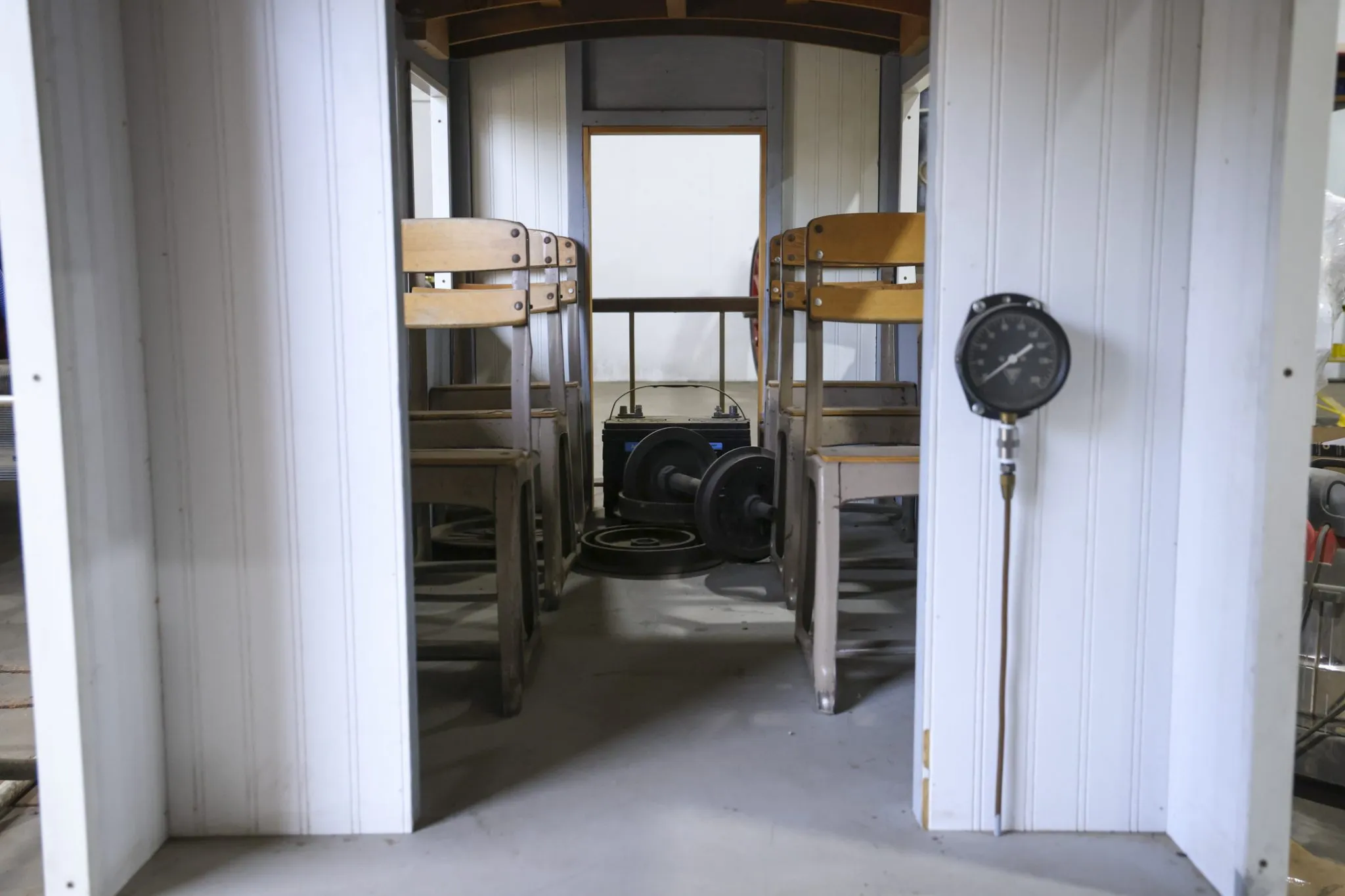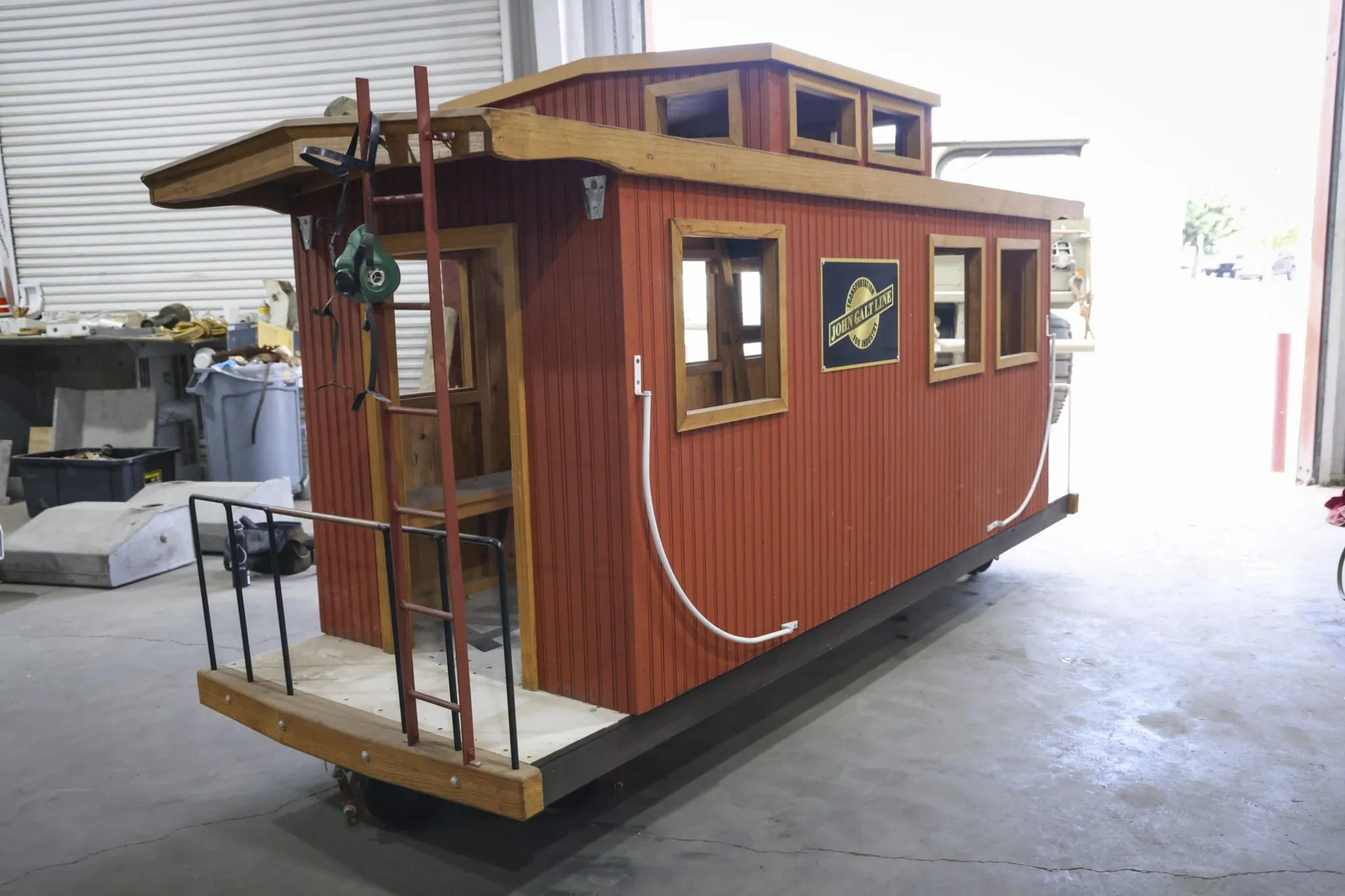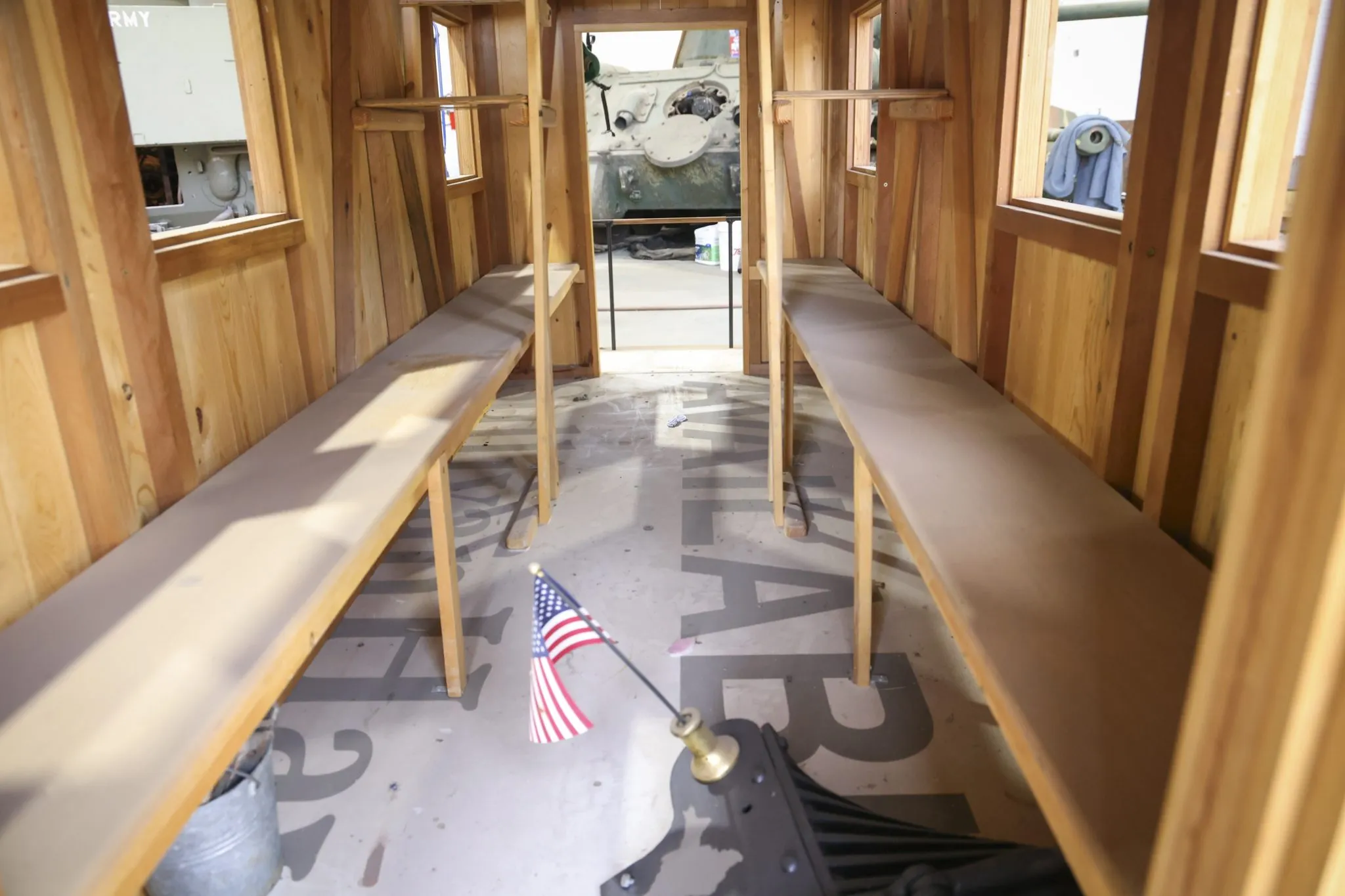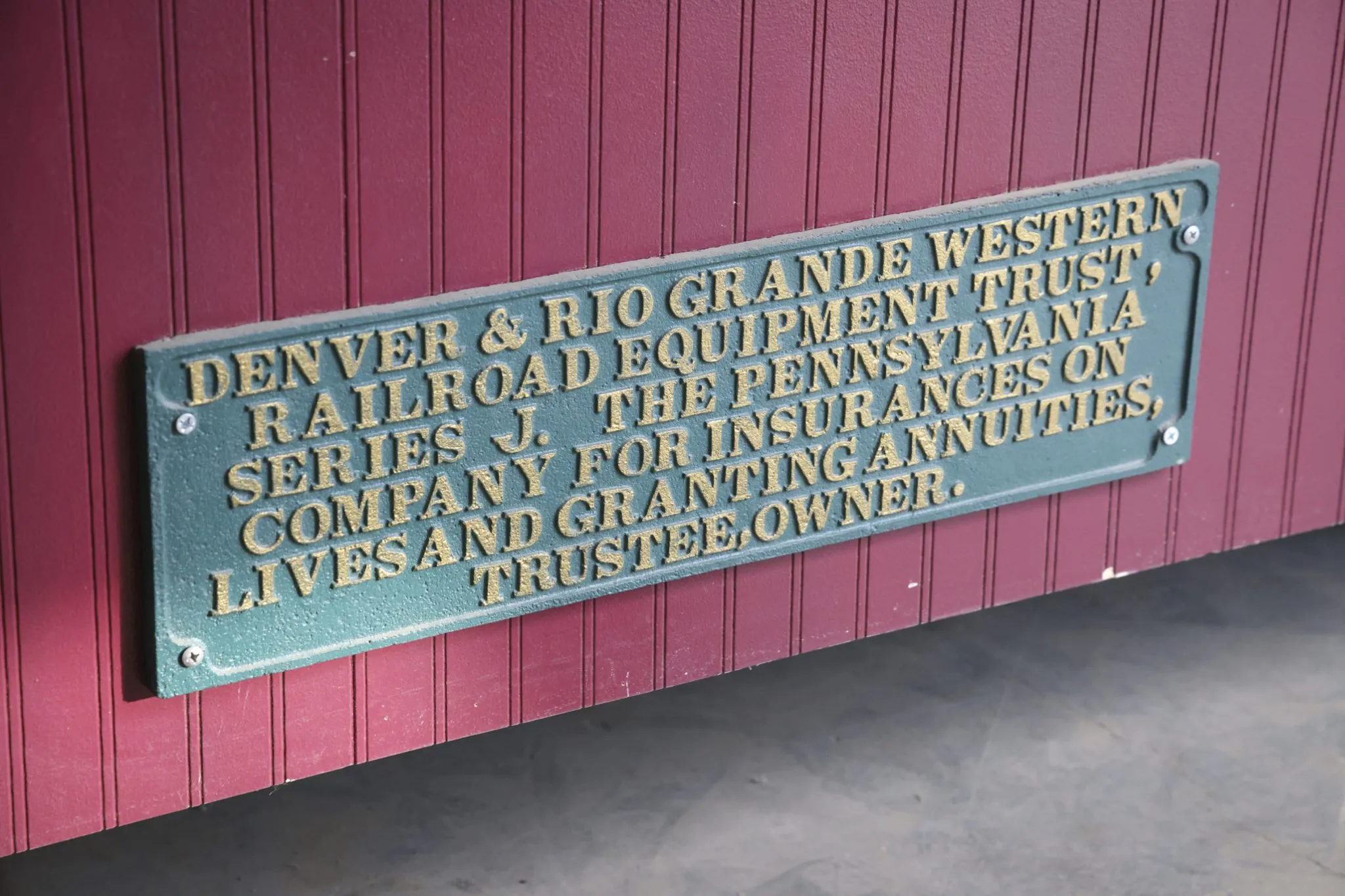This Cagney Class D is a 15”-gauge 4-4-0 steam locomotive that is said to be one of 24 miniature engines produced by the Miniature Railway Company in Manhattan, New York, for visitor transportation at the 1904 St. Louis World’s Fair. The locomotive was purchased out of Indiana in the 1990s by an owner who commissioned a seven-year refurbishment before operating it on his private railroad near Denver, Colorado. It was later listed on BaT in May 2022 by the selling dealer, who acquired it the same year. Power is sent to two sets of wheels by a 150-psi propane-fired boiler and two 2.75×4” double-acting cylinders with slide valves and Stephenson valve gear. The locomotive is finished in red and black and features two Penberthy water injectors, engine air brakes, a ride-on double-truck tender car, a cowcatcher, an electric headlamp, and a brass bell. The engine is accompanied by two enclosed ride-on railcars built by Wasatch Railroad Contractors as well as 1,000 feet of track. This Cagney Class D miniature locomotive is now offered in Newbury Park, California, on a bill of sale.
The Miniature Railway Company was founded in 1898 by three brothers from the Cagney family to focus on the marketing of small-scale steam locomotives manufactured by the McGarigle Machine Company in the Buffalo area. Based in Manhattan, the Miniature Railway Company sold trains and railways for use at amusement parks, expositions, and resorts in three gauges referred to as the Class C, D, and E. This locomotive is a Class D example suited to operate on 15”-gauge track.
Cagney engines featured a design approximating that of the New York Central and Hudson River Railroad’s No. 999 locomotive, including the 4-4-0 wheel configuration commonly known as the American. This example is said to have undergone a multi-year refurbishment by Fred Swoveland’s Baker Boys Machine Works in the 1990s. The boiler jacket is finished in red with black cab panels obscuring the firebox and controls. Also finished in black are the sand and steam domes, smokestack, and smokebox door, the latter of which is encircled by “Miniature Railway Co.” cast lettering along with the year 1904. A removed black cowcatcher with twin flag stanchions is included in the sale.
Steam flow into two 2.75×4” double-acting cylinders mounted outside the frame is fed by a 150-psi boiler and is regulated by slide valves and Stephenson valve gear. Heat production was converted to propane, while water is provided to the boiler by Penberthy injectors with piping measuring ¼” at left and ⅜” at right. According to the selling dealer, the boiler was inspected before the train was placed in storage approximately three years ago. A plate affixed to the rear of the firebox indicates repair in 1997 and is stamped with the National Board of Boiler and Pressure Vessel Inspectors symbol.
Driving wheels with integrated counterweights are positioned outside the frame and are finished in black with white rim faces. Braking mechanisms situated between the driving wheels are operated via an air compressor housed in one of the cars and default to an actuated position on both the engine and cars in the event that air pressure is not present.
The tender is finished in red with black seating surfaces and rides on two arch-bar-style trucks carrying four wheels each. The seating surfaces position the engineer within reach of the firebox door, a Johnson bar, and air brake actuation, while a wooden storage box is mounted at the rear of the tender.
Additional engine equipment includes a steam whistle, a brass bell, and an electric headlamp encased in a red-painted housing fixture.
Included in the sale are two enclosed ride-on cars built by Wasatch Railroad Contractors in Cheyenne, Wyoming. A passenger-style car is finished in red with white window frames and features a clerestory roof over seating for six divided from an entryway, while a caboose-style car contains center-facing benches and a pair of elevated seats. Each car rides on two trucks equipped with their own brakes that will engage if the cars are broken away from the engine. Accompanying the engine and cars are 1,000 feet of track and a variety of used spare parts. An in-period image of a Cagney locomotive in operation is shown in the photo gallery below.

